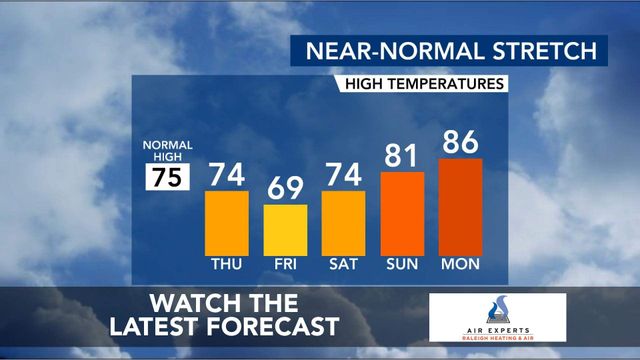Erskine Bowles Sworn In As President Of UNC System
Former White House Chief of Staff Erskine Bowles was sworn in Wednesday as the president of the University of North Carolina system, saying it was the greatest honor of his career.
"As I've gotten a little older, balder, and maybe a little wiser, I've learned that sometimes in life the real world is even fonder than your dreams," said Bowles, who ran twice ran unsuccessfully for U.S. Senate before being tapped last year to take over for former system President Molly Broad.
Bowles, a former investment banker, began the job Jan. 1. He was sworn in at the University of North Carolina at Greensboro in his hometown.
Bowles was White House deputy chief of staff under President Clinton from 1994 to 1995 and then was chief of staff from 1996 to 1998.
He came home after the end of the second Clinton administration looking to turn his White House experience into a continued career in public service. He won the Democratic nominations for Senate in 2002 and 2004, but lost the first of those general elections to Elizabeth Dole. He then watched a robust lead in the polls over then-U.S. Rep. Richard Burr dissolve before eventually losing in what many observers considered an upset.
Bowles is a multimillionaire who has long-standing connections to the University of North Carolina. He received his bachelor's degree from UNC-Chapel Hill and a center on alcohol studies is named for his late father, Hargrove "Skipper" Bowles. The elder Bowles was a state cabinet secretary who lost in the 1972 gubernatorial election.
Bowles will earn a salary of $425,000, but intends to donate $125,000 a year to need-based student aid funds.
Bowles has said since he was hired that he wants to improve teacher training and student retention. The state budget plan he presented Tuesday, his first as system president, emphasizes those areas, along with improving nursing programs.
"Our people are no longer competing for jobs and work with just the citizens of South Carolina, Tennesse and Georgia. In today's knowledge-based global economy, we're competing head-to-head with China, India and dozens of other countries that are making tremendous strategic investments in education and research," Bowles said Wednesday. "The cold hard fact is that if we don't get more of our own people better educated, we're in a losing fight, a fight that if we shape up, we can still win and win big."
Bowles has discussed the plan with state leaders, including Gov. Mike Easley, and hopes to come up with a campaign to promote it.
"I've been going around," Bowles said Tuesday. "I think they recognize it's a crisis. Whether they want to get out their pocketbooks, that's another thing."
Among the proposals is $2.1 million for a "differential reward" pilot program that will recruit and pay 90 math teachers in some of the state's poorest rural high and middle schools. Participating teachers would receive higher salaries than other teachers.
Bowles also wants $75.5 million to pay for a 5 percent raise for faculty, $79 million for enrollment growth and $21.6 million for need-based student financial aid.
The proposals are in addition to the $2.1 billion state legislators approved in August for the 2005-06 school year and a tentative budget of at least $2.1 billion for the 2006-07 school year.









